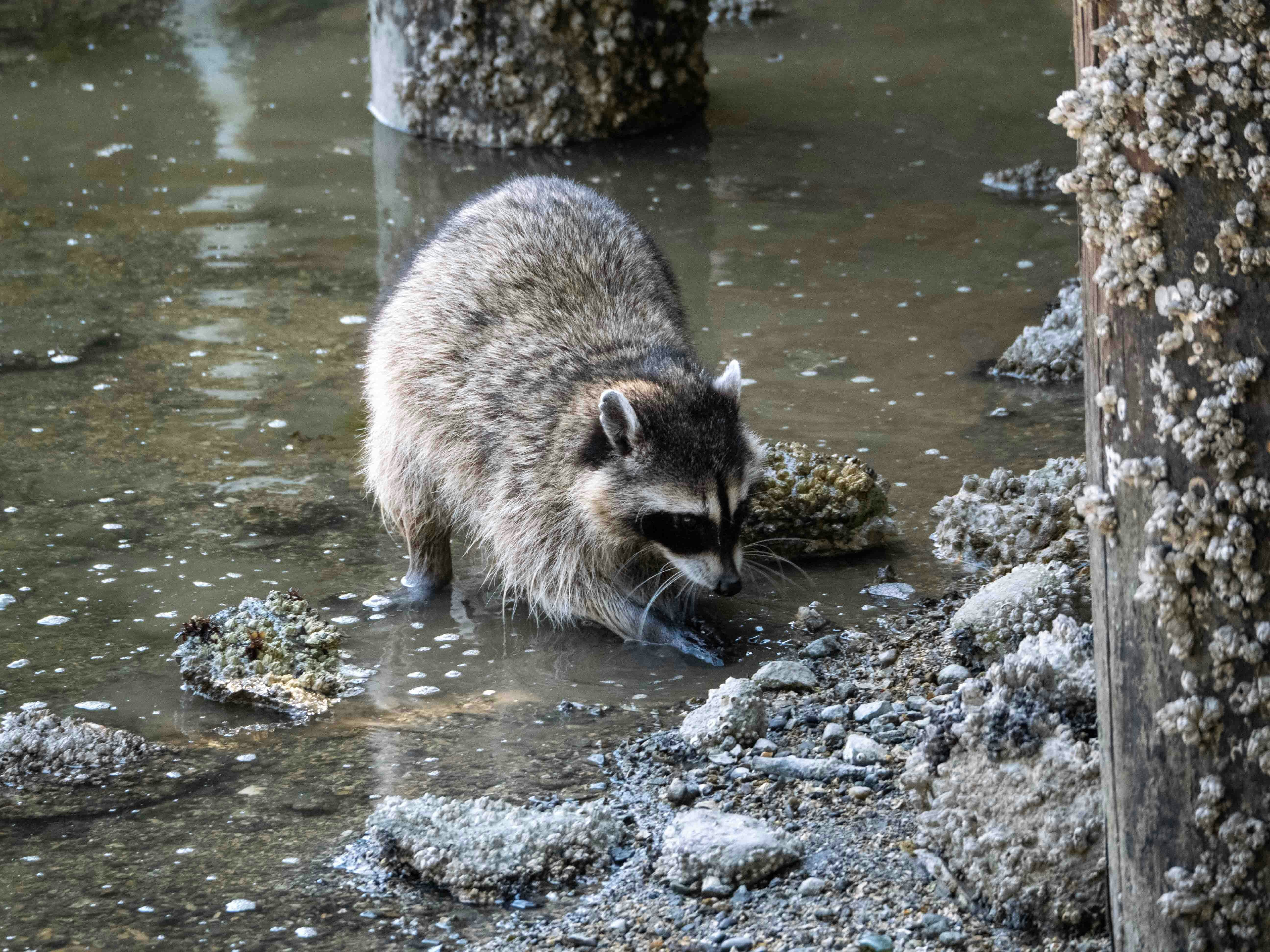
The Northwest Straits Chapter has long been invested in water quality issues at Larrabee State Park near Bellingham, WA. Nearly 10 years ago they started testing the water quality at Wild Cat Cove in the Park, and have been working with local and state partners since then to investigate the sources of pollution and problem-solve for solutions. Read more about the history of pollution at Larrabee State Park and the Chapter's involvement here.
This summer marks the third year that the Chapter is running a daily education and outreach program at the park. With a workforce of 15 interns, they are leading nature and beach walks, continuing to test the beach water, manning a booth on water quality and speaking to campers about how not to attract raccoons.
 As it looks like the culprit for the bacteria load detected at the beach is the local population of raccoons thriving at the campground, the Chapter volunteers have also taken it upon themselves to clean up a discrete site on one of the creeks favored by raccoons as a temporary pollution solution. The Chapter is hoping that their outreach program will continue to give park visitors a greater appreciation for the natural environment of the park and will lead to changed camper behavior, less readily available food for the overgrown raccoon population, and ultimately improvements in water quality are seen.
As it looks like the culprit for the bacteria load detected at the beach is the local population of raccoons thriving at the campground, the Chapter volunteers have also taken it upon themselves to clean up a discrete site on one of the creeks favored by raccoons as a temporary pollution solution. The Chapter is hoping that their outreach program will continue to give park visitors a greater appreciation for the natural environment of the park and will lead to changed camper behavior, less readily available food for the overgrown raccoon population, and ultimately improvements in water quality are seen.
Below is an excerpt from a local media source that recently covered the pollution at Larrabee State Park and efforts for outreach and remediation.
Bellingham Herald
Beach water contaminated at two parks in Whatcom County
One known source is raccoons, which are living on campers' food and garbage.
“I would consider them urban raccoons that are thriving on the garbage,” said Christopher Clinton, interim manager of the state's BEACH program. “They're eating garbage, that's why they're there.”
And they're pooping near an unnamed stream that starts at the campground and empties into the cove.
To combat the fecal bacteria, county and state officials are getting help from the Northwest Straits chapter of the Surfrider Foundation. Those volunteers are picking up the poop at the “raccoon latrine,” Kunesh said, and educating campers about the problem.
“We'll definitely re-evaluate the end of the summer to see if we're getting any improvement, and go from there,” Clinton said. “We're having the volunteers remove the poop more often this summer. That's not really a sustainable solution, but if we can get some kind of response at least we'll know we're heading in the right direction.”
Even if they can't eliminated the elevated bacterial levels, Kunesh said that removing the raccoon feces will protect public health because it will keep pathogens in that feces - including E.coli, salmonella and parasitic disease such as roundworm - out of the water and, hopefully, away from people.
As for Little Squalicum Beach, the number of sites and frequency of monitoring there have increased to try to pinpoint the source of fecal contamination. There are six monitoring stations at the beach.
Read more here: http://www.bellinghamherald.com
